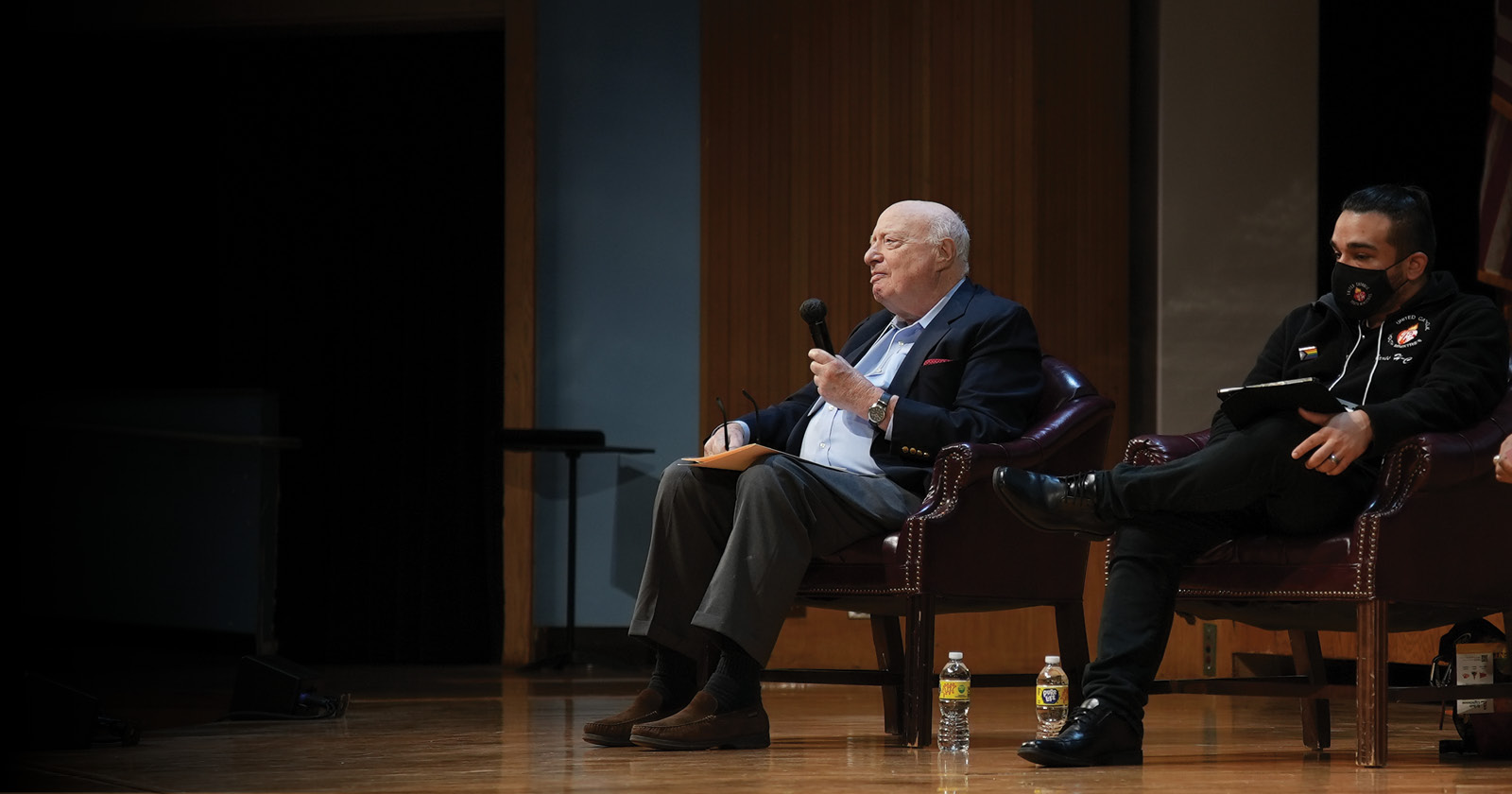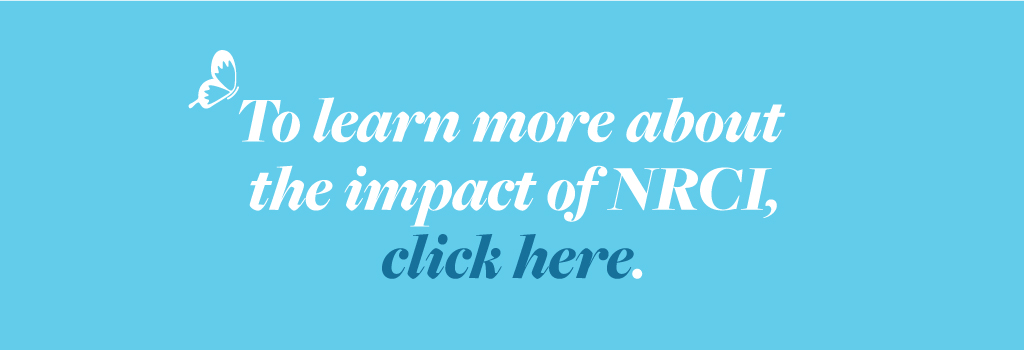Small choices every day affect our lives in ways that may be hard to notice. And big choices are made—often in times of trial—that can change lives forever.
Larry and Marilyn Cohen were overseas in May 2000 when they learned their daughter, Naomi, had died by suicide. On a grim trans-Atlantic flight, they had to come to grips with the news and begin to face a future forever altered. They decided upon a small ceremony. The choice seemed proper, with respect to the family’s privacy and Naomi’s memory. Larry has said that when you tell someone you have cancer, they are full of sympathy, but when you tell them you have bipolar disorder—as Naomi did—they are at a loss for words.
However, when the Cohens met with Peter Knobel at Beth Emet synagogue to make arrangements, including their desires for the service, the rabbi said, “If you make it a private service, no one will understand why Naomi took her life. People will think it was a rational choice, but rationality had no part in her decision.”
Rabbi Knobel’s observation struck at the heart of a new understanding—of a new way of compelling people to rethink their attitudes—and it provided the Cohens with a means to fashion the broken pieces of a tragic event into a vessel from which families in pain and seeking solace could draw. The objective would be to lift the shroud of stigma that hangs on the shoulders of the mentally ill and their families, especially in times of trauma.
“Twenty years ago, it wasn’t called bipolar disorder,” Larry says. “It was called manic-depressive illness. But what did that mean? Depression was what you felt when the Cubs lost or you got a bad grade, and manic was something out of slasher movies. People didn’t understand.” And that lack of understanding bred stigma. “We learned that there were 2 million people in America suffering from this condition,” he explains, “and three quarters of them were getting no treatment.”
The Cohens decided they would devote their efforts to education and that the best way to accomplish their goals was by holding a conference. Never mind that they had never organized a conference and there was no model for what they were trying to do. So, they established a program based on a few simple principles. The event must not be restricted to professionals but should welcome the general public. Admission must be affordable. The list of speakers should include not just experts but members of the community who have faced mental health challenges. There would be discussion groups on a range of related topics, and the event should include both a spiritual and secular component.
The Naomi Ruth Cohen Charitable Foundation was formed in June 2000, and the first conference was held on April 7, 2002, at Beth Emet and was titled Understanding Manic Depressive (Bipolar) Illness. The themes were overcoming the stigma of mental illness, understanding manic-depressive illness, and combating stigma with facts. After a welcome by Rabbi Knobel, speakers included Fred Goodwin, who was director of the National Institute of Mental Health and co-author, with Kay Redfield Jamison, of “Manic-Depressive Illness: Bipolar Disorders and Recurrent Depression,” the premier treatise on bipolar disorder. They were followed by a panel discussion, dinner, discussion groups, and a spiritual message delivered by Judith Watts to close the conference.
Despite the impressive lineup of participants, Larry says, “It was a debacle. We had maybe 50 people preregistered, but there was almost another hundred people who came to the door that we hadn’t counted on.” But in the end, once those logistics were ironed out, he says, “People came up to us and said, ‘This was a wonderful experience for me. I never knew other people were suffering like I was. I never knew what bipolar really involved. I now have associations, and I now have the context to think about the whole problem.’”
Michael Horowitz, Ph.D., who was then the president of The Chicago School of Professional Psychology and a member of the synagogue, admired the work the foundation was doing on a shoestring budget. “The institute was kept going by an army of volunteers, which also shows you the need and desire for what they were providing,” says Dr. Horowitz, now the president of The Community Solution Education System, an integrated, nonprofit system of colleges and universities that includes The Chicago School. “The courage of the Cohens to turn a private tragedy into a public opportunity for mental health. To me, that’s the heart of it. That’s why it’s aligned with The Chicago School and why we need to keep going.”
In 2008, the foundation became a part of The Chicago School, forming the Naomi Ruth Cohen Institute for Mental Health Education (NRCI). The organization benefitted from institutional direction and the efforts of students who volunteered to advance the mission. “Working with the NRCI was a great way for me to connect what I wanted to do in the future with the skill I already had,” says April Hall, M.A., alumna of The Chicago School and former NRCI volunteer.
In 2017, NRCI hired Kate Mahoney, LCSW, a mental health professional with 30 years of experience. She served the institute for four years until her death in 2021. Her contributions to NRCI left a lasting impression on those she worked with, especially Marilyn Cohen who says of her, “Kate had an impact on so many lives, including people who might never know her name.”
Her remembrance was held during the 2021 virtual conference—Stress and Grief During a Global Pandemic. During a season of historic loss of life, the panelists and participants from around the world gathered to consider the scope of collective losses. In the most precarious of times, the virtual conference demonstrated NRCI’s capacity for tackling big topics, as terms like “bereavement overload” and “vicarious grief” were addressed for the first time.
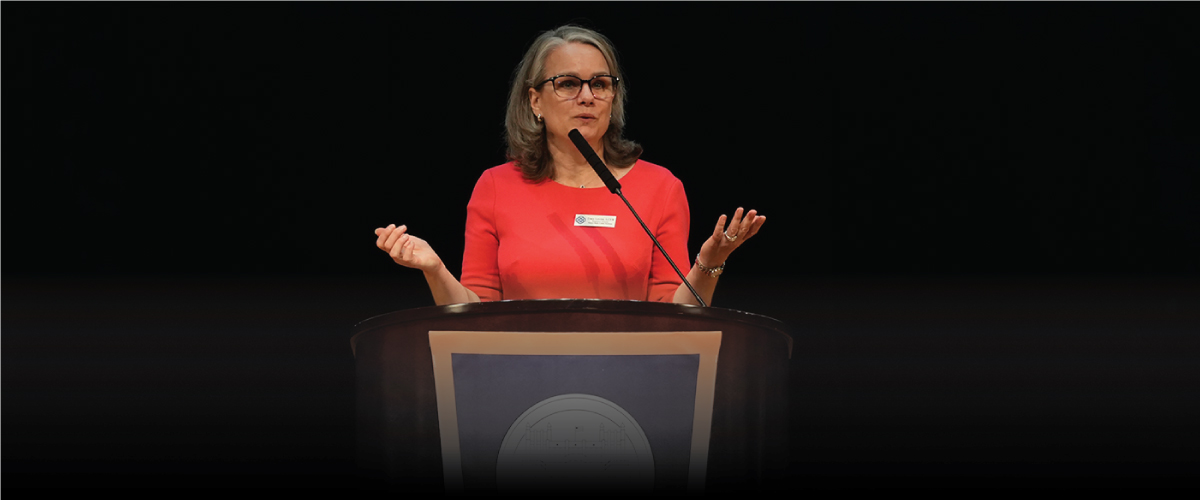
Just before the 2021 conference, Tracy Levine, LCSW, was named executive director of NRCI, bringing with her three decades of experience in the field. Under her direction, NRCI has provided mental health education to over 2,000 students, community members, and partners through the annual conferences, the Mental Health First Aid program training for adults and teens, QPR Suicide Prevention Gatekeeper training, and other programs, including a partnership with the City of Evanston, Illinois, for their summer 2022 Mayor’s Summer Youth Employment Program.
Among her objectives is to continue providing mental health education and suicide prevention training to students and community partners and to expand NRCI to The Chicago School’s other campuses. “The vision is to be a presence at every campus at The Chicago School,” Levine says, “and to be the community mental health education link for all our students and partners.”
Over the last 20 years, attitudes about mental health have changed for the better. “It’s no longer hidden in the shadows as it was in 2001,” Larry notes, pointing to legislation that Gov. JB Pritzker of Illinois signed in spring 2022 aimed at increasing the number of mental health professionals in the state and increasing access to high-quality mental health services. It is important to note, however, that the theme of the 2022 NRCI conference, It’s Tough Enough: Adolescent Mental Health in Our Changing World, was bolstered by a U.S. Surgeon General’s advisory on the teen mental health crisis, just as a Surgeon General’s report mirrored the subject of the first conference two decades earlier. The work of mental health education continues.
“The Cohens have been a very powerful torch for fighting the stigma of mental health,” Dr. Horowitz says, “and now we’re seeing a new generation of change agents pick up the torch.”
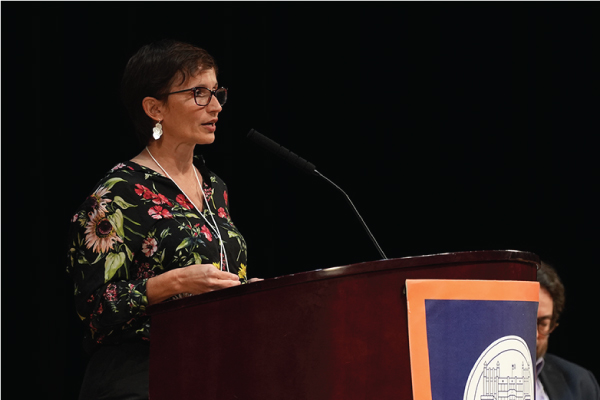
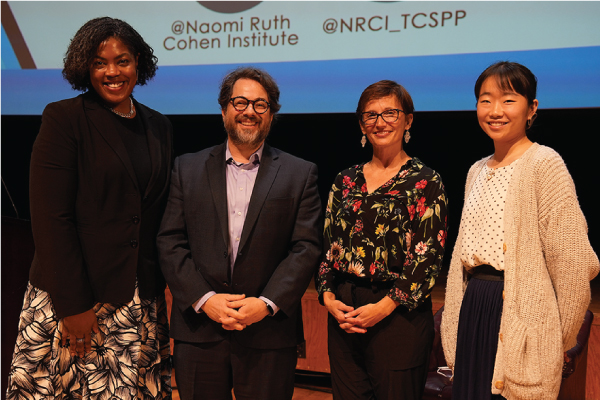
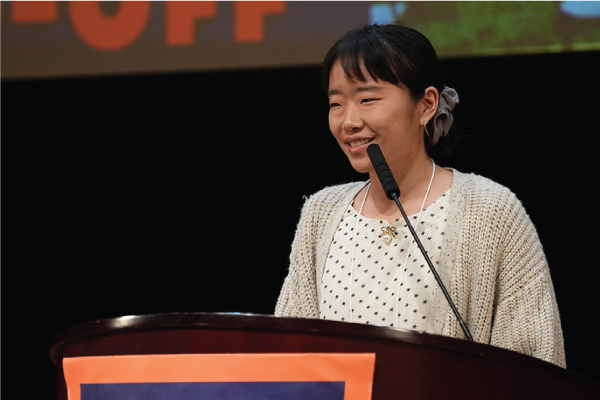
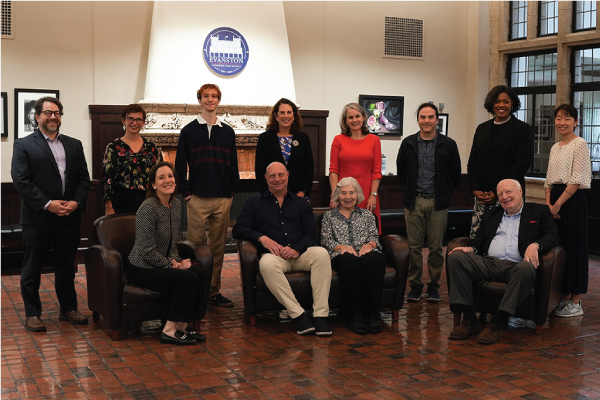
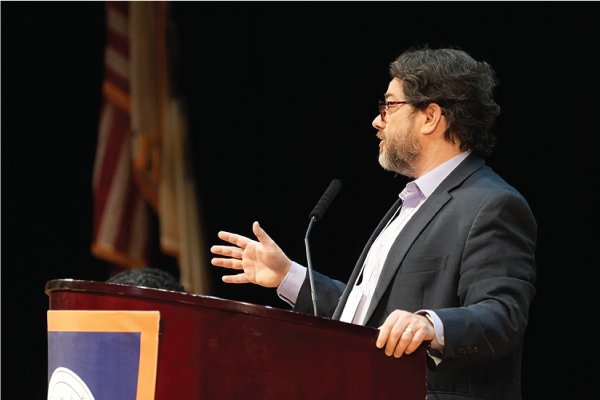
Learn more about The Chicago School
To learn more about academic programs at The Chicago School, fill out the information below to request more information. You can also apply today through our application portal here.

